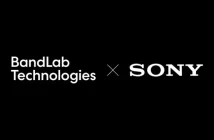DeepSeek’s Disruptive Rise and OpenAI’s Suspicion
Earlier this year, China-based AI platform DeepSeek sent shockwaves through the tech industry when its chatbot demonstrated that advanced AI models could be developed at a fraction of the expected cost and computational power.
This breakthrough raised eyebrows at OpenAI (valued at $157 billion), which reportedly suspected DeepSeek of training its model on OpenAI’s proprietary data—an ironic twist given OpenAI’s own legal battles over copyrighted material, including a lawsuit filed by German licensing body GEMA in November.
Now, DeepSeek is making waves in music. Tencent Music Entertainment (TME) has integrated the AI platform into its ecosystem, leveraging its capabilities for AI-powered music creation, distribution, and more.
TME’s AI Music Revolution: From Creation to Distribution
In its latest Environmental, Social, and Governance (ESG) report (published April 23), TME detailed how AI is transforming its business—from sound optimization to AI-generated music.
AI Songwriting & One-Click Distribution
With the rise of user-generated content, TME is betting big on democratising music creation. The company’s QQ Music platform now integrates DeepSeek-R1, an AI model that assists with lyric generation, while its AI Songwriter tool lets users input a brief idea or custom lyrics to produce fully original AI songs—complete with vocals.
Key features:
- AI Tone Magician: Users can record a 30-second to 4-minute voice clip to generate a personalised AI vocal tone.
- Music Separation Cloud: Splits uploaded tracks into stems (vocals, drums, bass, etc.), supporting up to eight isolated audio layers.
- One-click publishing: AI-generated songs can be distributed directly to QQ Music, China’s leading streaming platform.
TME’s Tencent Music Venus platform further supports musicians with tools like AI Songwriter, AI Tone Magician, and Music Separation, all designed to streamline the creative process.
Empowering Indie Artists—With AI
TME’s Tencent Musician Platform now hosts 580,000 independent artists (up 100,000 YoY), offering AI tools for:
- Lyric writing, composition, and arrangement
- Short video, album cover, and poster generation
- Noise reduction and music transcription
The company claims these innovations help artistes “enhance efficiency” in both creation and promotion.
The Copyright Question: Legal Risks & AI’s Ethical Dilemma
While TME touts its AI advancements, rightsholders are wary. The ESG report does not disclose what data trained its AI models—leaving unanswered whether copyrighted music was used without permission.
Regulatory & Legal Risks
TME acknowledges in its 2024 Annual Report that AI presents significant legal uncertainties, including:
- Ownership disputes over AI-generated content
- Potential copyright infringement from unlicensed training data
- Evolving regulations that could increase compliance costs
As of December 2024, TME faced 315 pending copyright lawsuits, seeking RMB 198.7M ($27.2M) in damages—though it’s unclear if any relate to AI-generated tracks.
The company insists it follows an Artificial Intelligence Generated Content (AIGC) Product Compliance Manual to ensure ethical AI use, but the lack of transparency around training data remains a concern.
The Bigger Picture: AI’s Flood into Streaming
TME isn’t alone in grappling with AI’s impact. Deezer recently revealed that 18% of new uploads are AI-generated—20,000 tracks per day, doubling since January.
Aurélien Hérault, Deezer’s Chief Innovation Officer, warned “AI-generated content continues to flood streaming platforms… and we see no sign of it slowing down.”
Meanwhile, TME’s subscription revenue surged 25.9% YoY to $2.12B in 2024, driven by 121M paying users (up 13.4% YoY). The company credits its Super VIP tier and AI-enhanced features for boosting engagement.
Conclusion: Innovation vs. Accountability
TME’s DeepSeek integration marks a bold step into AI-powered music—but with legal, ethical, and artistic questions still unresolved, the industry must navigate carefully. As AI-generated tracks flood platforms, the battle over copyright, attribution, and fair compensation has only started.




